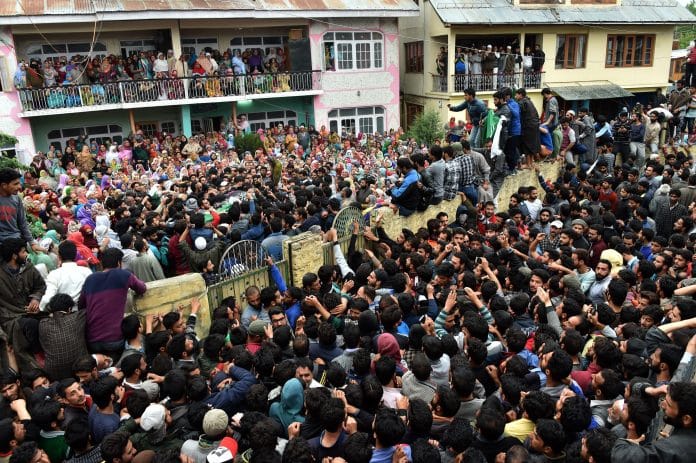Some said alienation among locals had reached a tipping point, while others worried that Dr Mohammad Rafi Bhat, a beloved professor to his students, might emerge as a role model.
Srinagar: A sense of foreboding prevailed in the Kashmir Valley a day after the killing of a 29-year-old sociology professor who had reportedly joined the Hizbul Mujahideen last week.
Some said alienation among locals had reached a tipping point, while others worried that Dr Mohammad Rafi Bhat, a beloved professor to his students, might emerge as a role model.
Jammu & Kashmir’s education minister said it would be wrong to attribute the alienation Kashmir’s youngsters felt only to unemployment.
Speaking to ThePrint, he said: “We are worried after the unfortunate incident of the killing of the university professor. It is a very difficult and challenging situation for us.”
“Earlier, we thought youths were being radicalised… but the fact that educated youths are joining militancy deserves a solution. We are not looking at it as a problem of unemployment,” he added.
Bhat, an assistant professor at University of Kashmir (KU), went missing from the university campus after Friday prayers last week. Less than two days later, he was identified as one of the Hizbul Mujahideen men killed in an encounter in Shopian.
This was probably the first time in decades that a professor in Kashmir took up arms to join militancy.
Countering ‘alienation’
A senior KU professor who didn’t wish to be identified said Bhat could become a role model for many young minds if efforts were not made to assuage their frustration.
“There is both worry and fear about this development (Bhat joining Hizbul Mujahideen). You have to understand the mind of the youth. There is an element of anonymity and frustration,” he said.
“Look at this professor, none of his colleagues or friends had a clue about him joining militancy. He was a favourite among the students. He could be a role model for them,” the professor added.
At the Islamic University of Sciences and Technology (IUST), located 33 km from the capital in Awantipora, the week opened on a note of alarm.
IUST vice-chancellor Prof. Mushtaq Siddique said he held a meeting with his colleagues and discussed “immediate outreach” to students who are “hopeless and disappointed”.
“There is no constituency of peace across the subcontinent,” Siddique told ThePrint. “The hardliners in Pakistan and India are affecting (youngsters’) psyche and pushing people like the professor to take extreme steps. There is desperation and hopelessness, which needs remedy,” he added.
He said even the teachers felt defeated.
“We come from the same social strata and the political situation is the same for us. Whether it is a militant or a civilian, as long as a Kashmiri gets killed, it worries a fellow Kashmiri,” he added.
The university recently held a programme where students were encouraged to debate, but Siddique said this “alone cannot help”. “We need a large platform…for youth to voice their opinions…to gain their confidence.”
The vice-chancellor of Central University of Kashmir (CUK), situated in Nowgam, Srinagar, Professor Mehraj-ud-din Mir warned the situation on the ground was getting “out of control”.
“The youth has become very emotional. We are not in a position to control (them). We must realise the situation on the ground is spreading like cancer,” he said.
Like at IUST, Mir has asked his colleagues to hold counselling sessions with youngsters and talk to them about their problems and worries.
“As a teacher here, I would say there is alienation, but it can only be addressed by love and affection. Guns on either side are not going to help,” he added.






